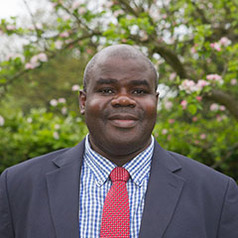As Malawi braces for the critical September elections, the integrity of one of Africa’s most respected public opinion research bodies, Afrobarometer, is now under serious threat, following explosive revelations of alleged collusion between its Director of Surveys, Dr. Boniface Dulani, and top officials of the opposition Democratic Progressive Party (DPP).
According to credible insider sources, a yet-to-be-released Afrobarometer survey for Malawi, originally scheduled for public release on Thursday, July 24, is likely to be delayed if the standoff between Dr. Dulani and the University of Malawi’s Centre for Social Research (CSR), which coordinates the survey locally, is not resolved in time.
The tension stems from growing resistance by CSR Acting Director Joseph Chunga, who is refusing to endorse the report, citing serious concerns over its credibility and external political interference.
“The results are not just suspicious, they’re outright dangerous to Malawi’s democracy,” one insider close to the research team disclosed.

Sources within CSR and the political community reveal that Dr. Dulani has been holding secret meetings with senior DPP operatives, including party President Arthur Peter Mutharika, Norman Chisale, and controversial financier Alfred Gangata.
These meetings, held mostly at Mutharika’s Nyambadwe residence in Blantyre over recent weeks, culminated in a corrupt deal worth K50 million meant to doctor the survey in the DPP’s favor and cast doubt on the popularity of President Dr. Lazarus McCarthy Chakwera and the ruling Malawi Congress Party (MCP).
The leaked draft report seen by The Pangolin claims DPP would secure approximately 40% of the vote in the upcoming elections, compared to just over 20% for MCP and about 10% for UTM, while the rest is fragmented among smaller parties.
Insiders say the numbers were crafted not from the field but from DPP boardrooms.
“They want to create a perception of inevitability, to demoralize voters and prepare ground for rejecting results in case of loss,” said a CSR researcher under anonymity.
The manipulation attempt, however, did not go unnoticed. Chunga, a seasoned researcher in political studies, refused to put his name, and institutional reputation, on a report riddled with political bias and methodological irregularities.

The CSR Acting Director, who has co-managed Afrobarometer surveys for a decade, reportedly clashed with Dr. Dulani and threatened to escalate the matter to Afrobarometer’s continental management in Ghana prompting the delay in the report’s release.
“There’s no way we’ll release a report that is politically poisoned. That’s electoral sabotage and unethical,” a source from CSR quoted Chunga as saying.
The latest scandal comes against the backdrop of the DPP’s ongoing attempts to discredit the September elections, the Malawi Electoral Commission (MEC), and President Chakwera’s government.
With violent civil society proxies, the DPP has ramped up its efforts to sow confusion and manipulate public opinion.
The party, still reeling from its 2020 court-ordered defeat, has increasingly turned to alternative narratives, ranging from alleged electoral fraud to economic despair, to regain its base, rather than offering policy-driven alternatives.
The Afrobarometer survey, if manipulated successfully, would serve as a psychological tool to create an illusion of DPP dominance and trigger voter apathy among MCP and UTM supporters.
This brewing scandal could not only damage the local credibility of the CSR and University of Malawi, but also Afrobarometer’s pan-African reputation. Known for its non-partisan stance and rigor, Afrobarometer’s legacy now hangs in the balance, with researchers across the continent watching closely.
Efforts to talk to both Dr. Dulani and Chunga were not successful.
However, it has been revealed that calls are growing within Afrobarometer’s central management team to immediately investigate the allegations against Dr. Dulani, whose proximity to the DPP has been widely discussed in Malawi’s academic and political circles for months.
The development also raises deeper questions about academic integrity, political pressure, and the misuse of donor-funded research platforms for partisan gain.
As the country inches closer to what could be one of the most consequential elections in its democratic history, the credibility of information will be just as important as the vote itself.
With the Afrobarometer survey now under heavy suspicion, Malawians must ask: Can we trust what we’re being told?
For many, the answer lies not in the numbers, however beautifully printed, but in the shadows behind how those numbers came to be.








